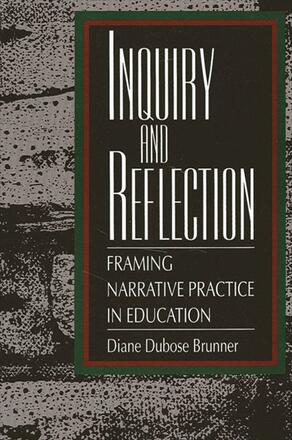
Inquiry and Reflection
Framing Narrative Practice in Education
Alternative formats available from:
Description
Inquiry and Reflection shows how stories of schooling can elucidate difficult, and unexamined problems facing teachers. While professional texts tend to raise issues of power and its distribution and questions of culture and ideology, often the manner of presentation is abstract, and pre-service teachers have difficulty making connections. Yet literary, film, and video materials illuminate problems and suggest ideas to which teachers can actively respond.
This book offers teacher educators a variety of resources for articulating a critical pedagogy and suggests an alternative to the technical, job training approach to teacher education by providing a unique educational curricula that illuminates issues of power, ideology, and culture.
Diane DuBose Brunner is Assistant Professor in the Department of Education at Michigan State University.
Reviews
"This is a book that gleams with insights; it may be a book that opens readers to themselves. As it extends the spaces for imagining and acting, it may lay the ground for a new mode of community in which increasing numbers of voices can be heard and understood, in which the possible comes closer to being the achieved. " —from the Foreword by Maxine Greene
"This is an incredibly 'practical' book for teacher educators who wish to teach 'theory' to prospective teachers and who have found that difficult. At a time when students are insisting more and more on hearing and understanding the 'practical application' value of theory, this book stands up and shouts, 'O. K., here it is!' And Brunner's book does this without sacrificing 'theory' to 'practice' or vice versa. " — Susan Huddleston Edgerton, University of Illinois at Chicago
"This book addresses an important and wide-spread concern of those who work in teacher education—the limitations of students' actual teaching experiences—and proposes the use of literature and the arts to deepen students' understandings of what it means to teach. This is an idea that is frequently talked about but there is very little written about the issue in relation to actual practice. " — Don Dippo, York University
"Brunner provides a synthesis of ideas from various sources: literature, media, critical and feminist theory, students' texts, and autobiographical narrative. This interweaving reflects a bold and unique approach to pedagogical issues. Perhaps most impressively, it deals with the dilemmas and uncertainties of teaching and learning in a personal fashion, and relates these to larger social, cultural, and political questions. " — Ken Kantor, National-Louis University